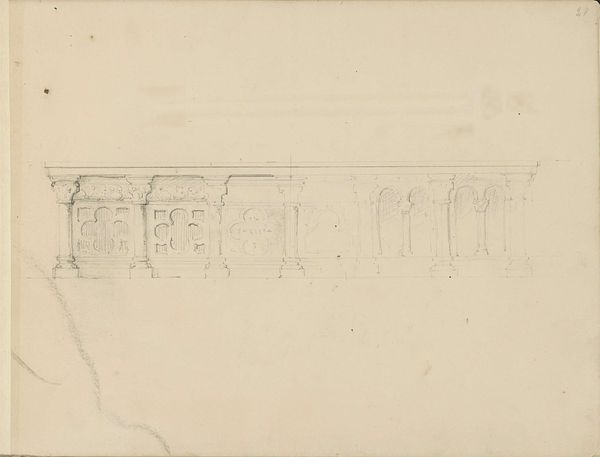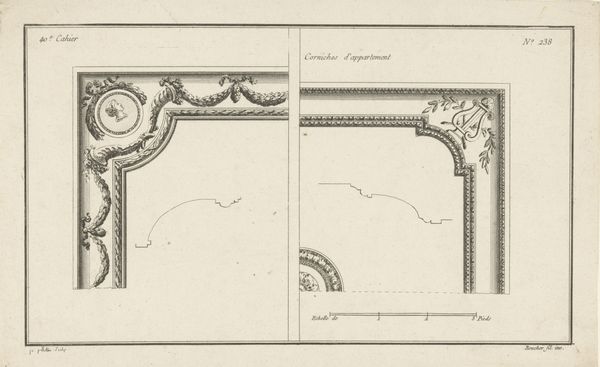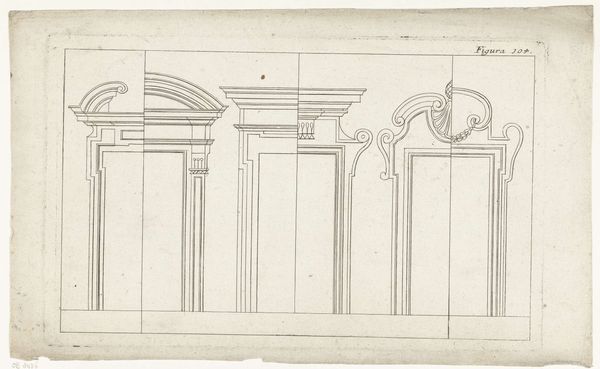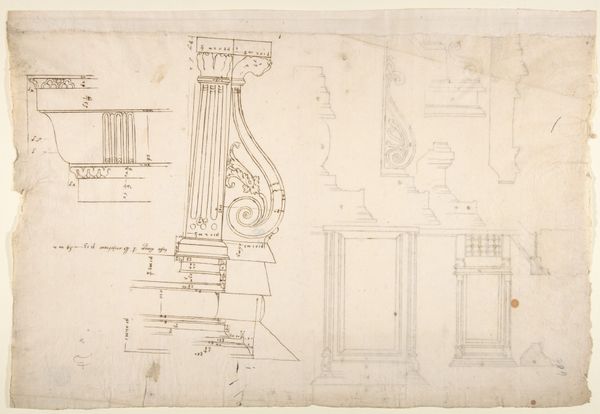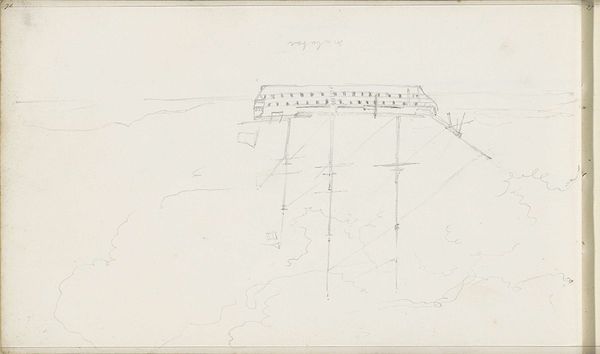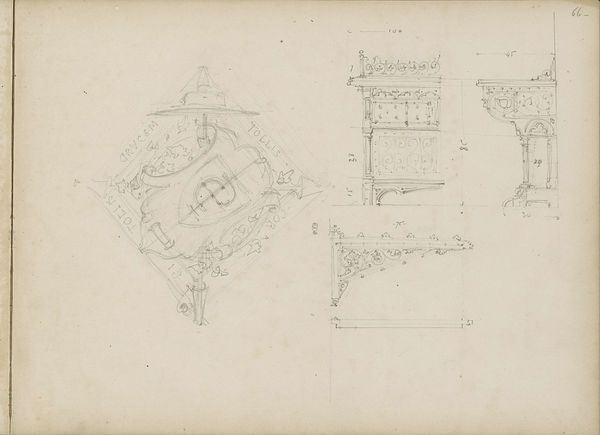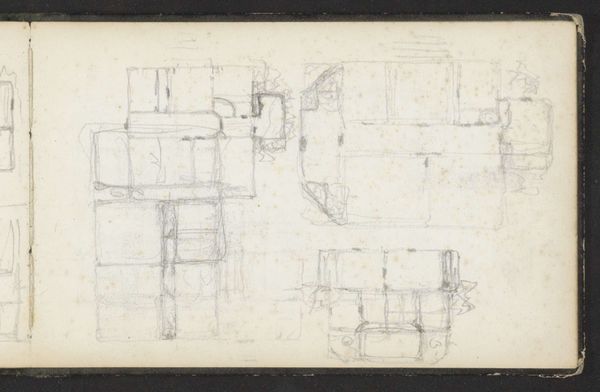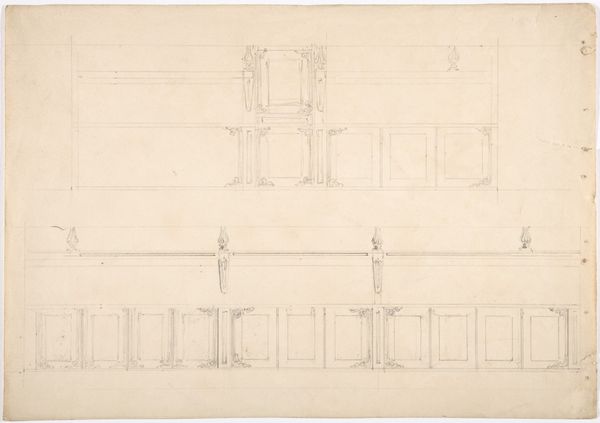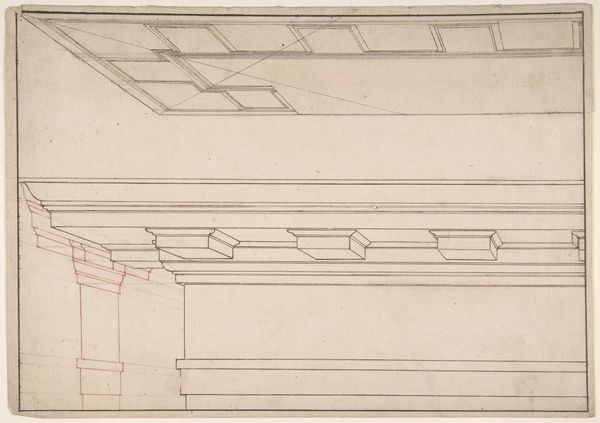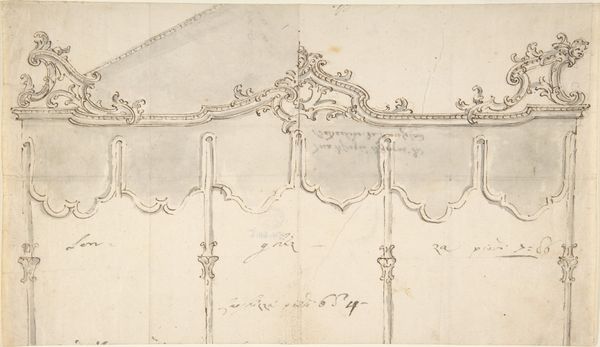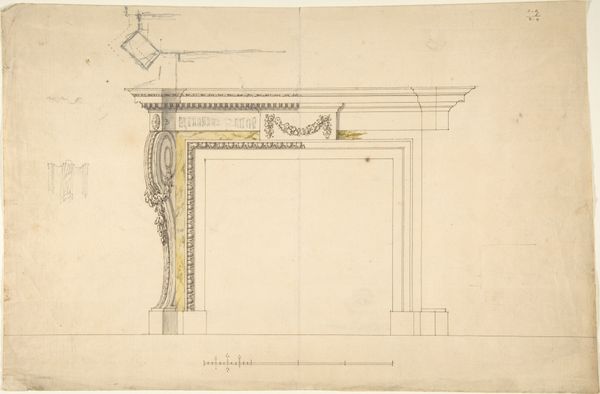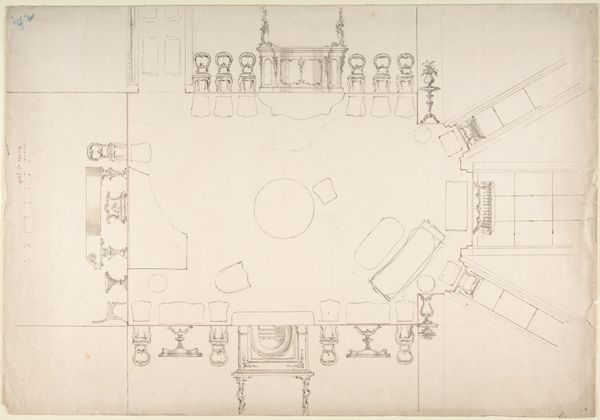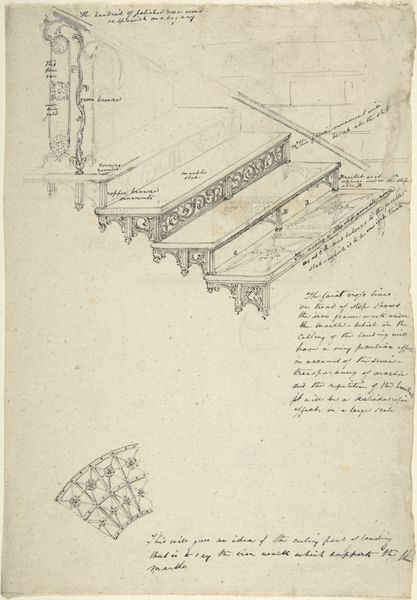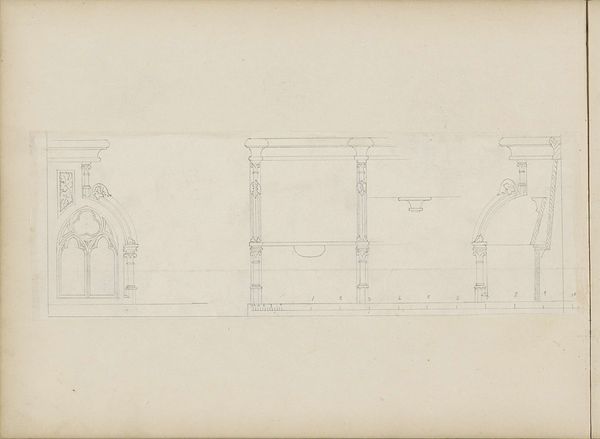
Plattegrond van grafmonument met Dorische zuilen in rots gehouwen en gelegen op afstand van 2 mijl van Syracuse 1778
0:00
0:00
louismayer
Rijksmuseum
drawing, print, etching, engraving, architecture
#
architectural sketch
#
drawing
# print
#
etching
#
etching
#
form
#
geometric
#
ancient-mediterranean
#
line
#
architecture drawing
#
engraving
#
architecture
Dimensions: height 180 mm, width 256 mm
Copyright: Rijks Museum: Open Domain
This drawing by Louis Mayer depicts a tomb monument near Syracuse with Doric columns hewn from rock. The Doric order, with its simple, unadorned capitals, is a powerful symbol of classical antiquity. Its presence here speaks to the enduring influence of Greek ideals on funerary architecture. We see this motif echoed across millennia, from the Parthenon to Neoclassical monuments. Consider how the Doric column, initially a symbol of strength and stability in temples, is here transformed into a marker of death. This highlights the human tendency to adapt and repurpose symbols, imbuing them with new layers of meaning. The classical language of architecture becomes deeply intertwined with the emotional weight of remembrance, resonating on a profound level. The cyclical progression of symbols reveals how they resurface, evolve, and acquire new meanings throughout history.
Comments
No comments
Be the first to comment and join the conversation on the ultimate creative platform.
